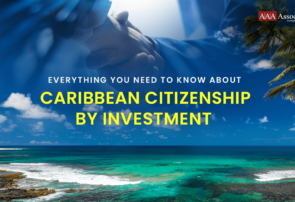What Does the Future Hold for Citizenship by Investment?

The world is becoming more and more interconnected, and as a result, the concept of nationhood is going through an interesting change. It seems like the days when geographical borders defined a person’s identity are coming to an end. As globalization takes hold of the world, shrewd individuals are looking for newer and novel ways to expand their horizons. Citizenship by Investment (CBI) has played a huge role in the growth of this trend.
Now, high-net-worth individuals (HNWIs) can acquire citizenship of a country in exchange for investment in the country’s economy. Multiple types of investment opportunities are available ranging from purchasing real estate, philanthropic contributions, and government bonds and once you invest, these CBI programs help fast the attainment of citizenship. There are multiple benefits to these programs: visa-free access to most of the world countries, increased global mobility, and the ability to expand your business in more viable economies with better tax and asset protection benefits.
A Thriving Industry with a Promising Outlook
The CBI industry has witnessed exceptional growth in recent years, with the global market value estimated to reach USD 100 billion by 2025 if the 23% CAGR trend persists. This surge is driven by several factors, including:
- Rising HNWI population: The global HNWI population is projected to reach 36.1 million by 2025, fueling the demand for alternative citizenship options.
- Geopolitical uncertainties: Increased political instability and economic anxieties in certain regions are prompting individuals to seek secure havens for themselves and their families.
- Enhanced program offerings: Countries are constantly refining their CBI programs, offering greater flexibility and diverse investment options, making them more appealing to a wider range of investors.
Caribbean Programs Leading the Charge
In the arena of citizenship by investment, the Caribbean region is a front-runner. Its Island nations like St. Lucia, Dominica, Grenada, and Antigua and Barbuda have very well-established and well-reputed programs.
Different programs require different investment amounts, with minimum investment amounts being USD 100,000 to USD 250,000. These programs offer speedy processing which results in visa-free access to the Schengen zone and over 100 countries.
Navigating the Evolving Landscape
However, the CBI landscape is not without its challenges. Scrutiny from international regulatory bodies has intensified, with concerns regarding due diligence, transparency, and potential security risks. This has led to some program suspensions and stricter vetting procedures.
Looking ahead, the future of CBI hinges on its ability to adapt to these evolving dynamics. Increased emphasis on sustainability, ethical investment options, and robust due diligence frameworks will be crucial to maintaining investor confidence and the industry’s legitimacy.
What You Can Expect
The future of CBI is likely to witness:
- Greater diversification: New players could emerge beyond the traditional Caribbean strongholds, offering Golden Visa programs and catering to specific investor needs.
- Technology-driven innovation: Streamlined application processes, online platforms, and blockchain-based solutions could enhance transparency and efficiency.
- Sustainability focus: Programs aligned with environmental and social impact projects could gain traction, attracting investors seeking ethical and impactful investment opportunities.
Investment Migration: A Strategic Choice
CBI, despite its complexities, remains a powerful tool for investment migration. With careful research, due diligence, and professional guidance, HNWIs can leverage these programs to unlock a world of possibilities, enhancing their global mobility, securing their families’ future, and diversifying their wealth portfolios.



